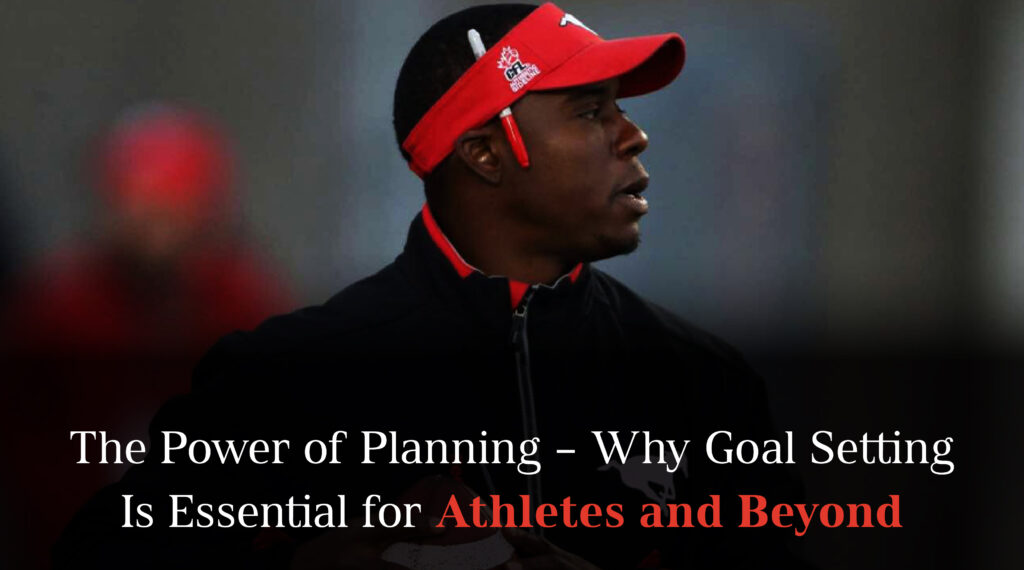Introduction
In the journey of life, the ability to break free from the past and embrace reinvention stands as a cornerstone of personal growth. For many, the past can serve as both a teacher and a tether—offering valuable lessons while simultaneously anchoring us to outdated identities, environments, or choices that no longer align with our potential. Kahlil Carter, a seasoned football coach and former professional athlete, exemplifies this transformative process through his remarkable career and life story. From his early days navigating the gang-ridden streets of Little Rock, Arkansas, to becoming a celebrated coach and player across multiple football leagues, Carter’s journey underscores why reinvention is not just beneficial but essential for unlocking one’s fullest potential. This blog explores the professional and personal imperatives of shedding the past, drawing on Carter’s experiences to illustrate how reinvention fuels growth, resilience, and lasting success.
The Weight of the Past in Professional and Personal Contexts
The past often shapes our initial trajectory, providing a framework of experiences that define who we are at a given moment. For Kahlil Carter, this meant growing up in an environment steeped in adversity—gang affiliations, socio-economic challenges, and familial struggles marked his formative years. As detailed in his book The iN Crowd: Life, Legacy, Leadership, Carter was thrust into a world where survival often trumped ambition. His older brother Aaron’s prominence in a local gang cast a shadow over Carter’s identity, branding him “Little DC” and pulling him into an orbit of potential peril by association. Professionally, this past could have dictated a limited career path, one confined to the streets rather than the stadiums where he would later shine.
In a corporate or professional setting, the past can similarly constrain individuals. Whether it’s a history of underperforming roles, a lack of formal education, or early career missteps, these experiences can create a narrative of limitation. Employees and leaders alike may find themselves typecast, their potential judged by outdated metrics rather than their capacity for evolution. Carter’s story challenges this paradigm, demonstrating that the past need not be a permanent blueprint. Instead, it can serve as a launchpad for reinvention when approached with intention and discipline.
Why Reinvention Matters
Reinvention is the deliberate act of redefining oneself—shedding old skins to embrace new opportunities, skills, and mindsets. For Kahlil Carter, this process was both a necessity and a choice. He writes, “When you make the decision to step away from gang life, it doesn’t follow you. You can relocate, start fresh in a new state, and evolve to a point where you can choose new friends and a different identity.” This pivotal shift from gang affiliation to pursuing football and academics at the University of Arkansas marked the beginning of Carter’s ascent. It was not merely a change of scenery but a profound transformation of purpose and self-perception.
In a professional context, reinvention is equally critical. The modern workplace demands adaptability—technological advancements, shifting market dynamics, and evolving organizational needs require individuals to continuously update their skill sets and perspectives. A study by McKinsey & Company highlights that 87% of executives believe skill gaps will disrupt their industries within five years, underscoring the urgency of personal evolution. For Carter, reinvention meant transitioning from a player to a coach, leveraging his on-field experience to mentor others. His ability to adapt—coaching at levels from high school to the Canadian Football League (CFL)—illustrates how reinvention sustains relevance and impact.
Moreover, reinvention fosters resilience. Carter’s journey through racism, family challenges, and career setbacks required him to repeatedly rebuild. Each reinvention—whether escaping gang life, earning a degree, or leading championship teams—strengthened his capacity to overcome adversity. In corporate terms, this resilience translates to navigating layoffs, pivoting industries, or recovering from failure, all of which are hallmarks of a growth-oriented professional.
Kahlil Carter’s Blueprint for Reinvention
Kahlil Carter’s life offers a structured yet inspiring model for breaking free from the past. His approach, rooted in faith, discipline, and purpose, provides actionable insights for professionals seeking personal growth:
- Recognize the Need for Change
Carter’s awareness of gang life’s limitations was the first step. He refused to let his brother’s path dictate his own, choosing instead to focus on football and education. In a professional setting, this equates to identifying when a role, mindset, or environment no longer serves your goals—acknowledging stagnation is the precursor to change. - Leverage Core Strengths
Carter’s natural athletic ability and relentless drive became the foundation for his reinvention. He harnessed these strengths to excel as a player, earning All-League honors and eventually a spot with the Buffalo Bills. Similarly, professionals must identify their unique competencies—be it analytical skills, creativity, or leadership—and use them as a springboard for new opportunities. - Seek New Environments
Moving to college and later pursuing a professional career miles from Little Rock allowed Carter to redefine himself. A change of context—whether a new job, industry, or geographic location—can disrupt old patterns and open doors to growth. Carter’s relocation to Des Moines, Iowa, later in life further exemplifies this, as he found a community where he could thrive spiritually and professionally. - Embrace Faith and Purpose
Central to Carter’s reinvention is his faith, encapsulated in his SWAAG philosophy: “Serving a Wonderful and Amazing God.” This spiritual grounding provided clarity and strength, guiding him through transitions. For professionals, aligning actions with a higher purpose—whether faith-based or value-driven—instills direction and resilience. - Commit to Continuous Learning
Carter’s evolution from player to coach required mastering new skills, from game planning to mentoring. His photographic memory and eagerness to learn from coaches like Pinball Clemons and Marc Trestman fueled his success. In today’s knowledge economy, ongoing education—through certifications, mentorship, or self-study—is non-negotiable for staying competitive.
The Professional Payoff of Reinvention
Carter’s reinvention yielded tangible results: a 12-year coaching career with 21 All-League players, multiple championship appearances, and a legacy of leadership. His transition from “Little DC” to “Coach SWAAG” reflects not just personal growth but a professional metamorphosis that impacted countless athletes. In his words, “I went off to college, miles away from my former life, and eventually realized my dream of playing professionally, which became my salvation.” This salvation was not merely personal—it extended to the teams he led and the communities he served.
For professionals, the payoff is equally significant. Reinvention can lead to promotions, new career paths, or entrepreneurial ventures. A Harvard Business Review study notes that individuals who proactively reinvent their careers report higher job satisfaction and earning potential. Carter’s ability to break barriers—becoming one of the first AF2 players to sign with an NFL team—mirrors how reinvention can shatter glass ceilings in any field.
Overcoming Resistance to Change
Reinvention is not without challenges. Carter faced pressure to conform to gang life, familial expectations, and the inertia of familiarity. He notes, “Aaron came dangerously close to drawing me in… I knew I had to stand right alongside [him] because if he ever needed me, I had to be there.” Breaking free required courage and sacrifice—saying “no” to his brother risked alienation, yet it preserved his future.
Professionals encounter similar resistance: fear of failure, comfort in routine, or skepticism from peers. Overcoming this demands a mindset shift—viewing change as an investment rather than a loss. Carter’s story reminds us that the cost of staying tethered to the past often outweighs the temporary discomfort of reinvention.
Conclusion Kahlil Carter’s journey from the streets of Little Rock to the sidelines of championship games is a testament to the power of reinvention. Breaking free from the past is not a luxury but an essential strategy for personal and professional growth. Whether you’re an athlete, a corporate leader, or an individual seeking purpose, Carter’s example—rooted in resilience, faith, and adaptability—offers a roadmap to transcend limitations. As he writes, “I transformed into a fighter… recognizing the limitations of my social environment and the complexities of my family situation.” By embracing reinvention, we too can turn chaos into opportunity, crafting a legacy of growth and impact. Visit Website to explore more of Coach Carter’s insights and how his SWAAG philosophy can inspire your own transformation.


